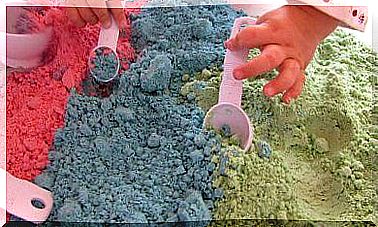The Importance Of Non-word In Education

Every child needs clear boundaries and rules. Failure to set boundaries usually results in parents not having the necessary means to discipline and set rules later on. Excessive tolerance in upbringing can cause the child various annoyances, for example in the form of low self-esteem and behavioral problems. The importance of a non-word should therefore always be borne in mind, however, bearing in mind that excessive harshness should also be avoided, as it also has negative consequences.
It is understandable that parents want to see their children happy and do not want to offend this. However, it is important for a child to learn patience, manners, and good values. Parents need to communicate clearly and adhere to boundaries and rules that match their values and keep the child safe.
The importance of the non-word in education
The ability to say “no” is an important part of raising a child. This is true whether the children in the family are young or have reached adolescence.
Consistency is important
Sometimes a “no” gets out of a parent’s mouth spontaneously even before he or she has properly thought about what the child should answer. This often happens, especially in situations where the child is irritated, behaves inappropriately, is in some kind of danger, or breaks rules or limits set by parents. The use of the word no is also important if the child refuses to perform the tasks assigned to him or her or otherwise perform his or her duties. In such a situation, it is important for the parent to stay firm and not allow the child to break the rules.
It is common for a child to want to negotiate or even try to manipulate or blackmail their parents to get what they want. Especially in such situations, parents need to hold their heads and make the child understand that the agreed rules must be adhered to. Parents need to be able to say “no” especially in situations where a child is doing something physically or mentally harmful to themselves or others.

Extremes should be avoided
Prohibiting a child is necessary in certain situations to protect him or her from harmful behavior or situation. However, excessive harshness should be avoided as it is harmful in many ways. Both excessive permissiveness and control can prevent a child from forming a good and sincere relationship with their parents. Unfortunately, parents sometimes miss the child’s true feelings and the struggles he or she is going through.
It is just as important for parents to learn to set boundaries and say “no” as to be able to say “yes”. By encouraging the child and allowing him or her to do things that are appropriate and safe for his or her age, parents support the development of his or her self-confidence.
A few tips on using a non-word
Discipline does not require shouting or constant punishment on the child. The key to raising a child is the ability to know why to say “no” and why to say “yes” – and to do both consistently and confidently. Staying calm is not always easy when a child breaks the rules or behaves badly, but anger and loss of patience are likely to only cause more problems and, at worst, damage the relationship between the child and the parent.
Shouting and punishing may make a child stop bad behavior, but he or she does so only out of fear. Instead of keeping discipline under the guise of fear, the child should be helped to understand why certain rules and restrictions exist. You can also sometimes reward a child for good behavior or excellent performance, but you should also be careful when rewarding, as the child quickly learns to do certain things just in the hope of a reward.
The fact that parents are consistent and open to rules and guidelines helps the child grow into a strong and responsible adult. Learning respect and obedience at home prepares the child to function at school, at work, and in society in general.









